Not Easy, But Worth It: What I've Learned in my First 120 Days in Aotearoa New Zealand
TL;DR
Relocating to Aotearoa New Zealand has been humbling, rewarding, and often difficult. The first 120 days have shown me how much adjustment it takes to find balance here, both personally and professionally. It is not a frictionless move, but it is one that reveals new values worth holding onto. What I notice most is the contrast in daily rhythm, a society less obsessed with convenience and more oriented around wellbeing, community, and continuity. Those trade-offs are real, and they matter.
Clean air, safe water, and mild weather make daily living less stressful.
I am still detoxing from the constant stress I carried in the U.S., which I did not fully notice until leaving.
Food and convenience seem more expensive, but there are positive trade-offs such as a non-existent tipping culture and healthcare that is more accessible.
Settling a family is tough, especially for children, but social circles do form.
The professional community is welcoming, and local cyber engagement is strong.
It is not perfect, but compared to the U.S., the balance of values is worth defending and preserving.
I also recognise that I have been extraordinarily lucky to have the privilege and resources to immigrate here. Most people cannot make such a move, but for the few considering where to build their future, or curious about what one version of this looks like, this is for you.
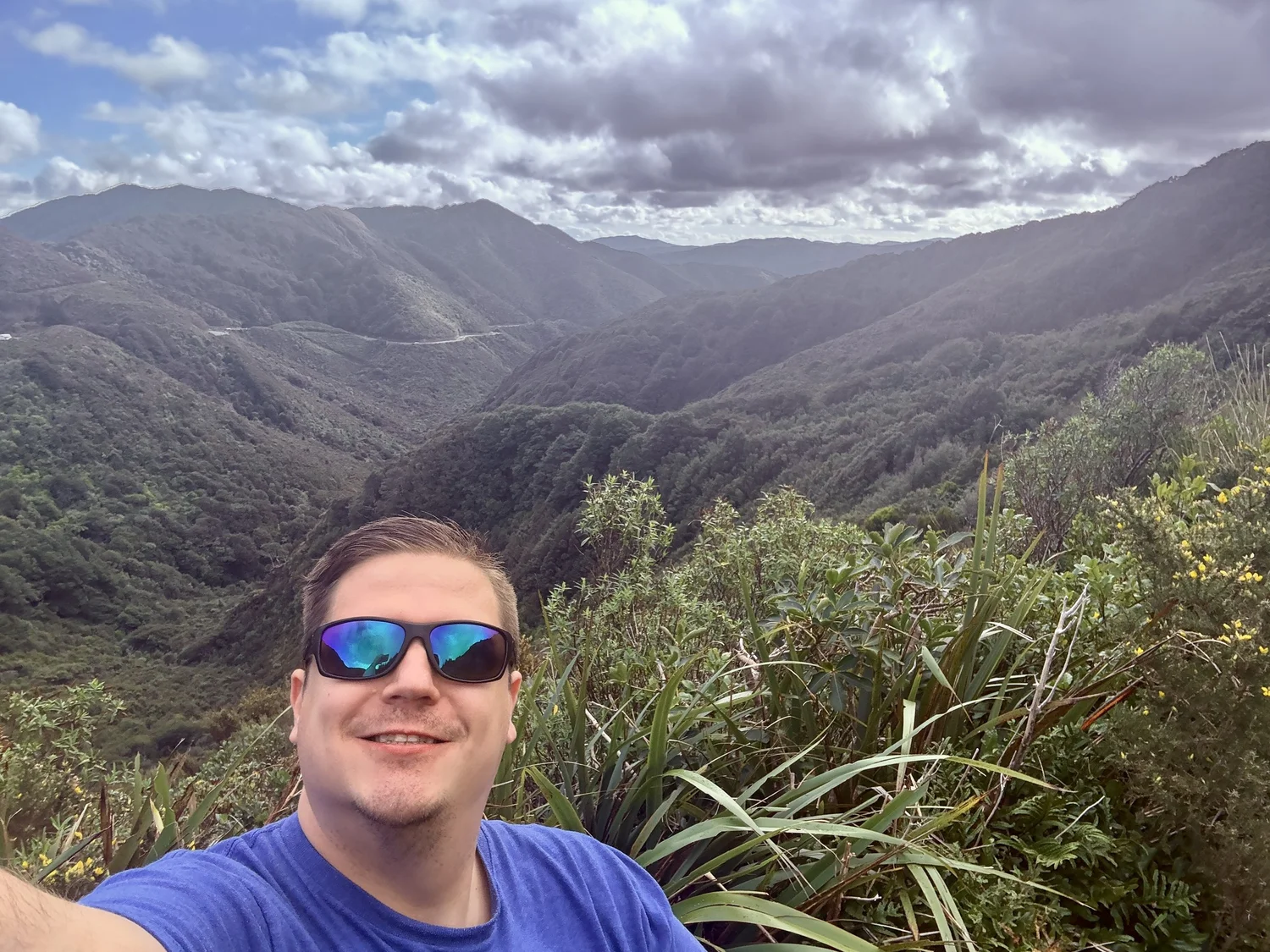
Learning to Drive Life Differently
One of the first things that hit me after arriving was driving on the left side of the road. For many Americans, that alone is one of the biggest fears of moving abroad, and I felt it too. At first it was unnatural, and more than once I got into the wrong side of the car before realising I was not the driver there.
With practice, it became second nature. That small but constant adjustment says a lot about life in Aotearoa New Zealand. Every day brings a reminder that I am learning to navigate differently, whether it is work culture, social rhythms, or the pace of decision making. Some changes are subtle, others obvious, but all require patience and a willingness to reset old habits.
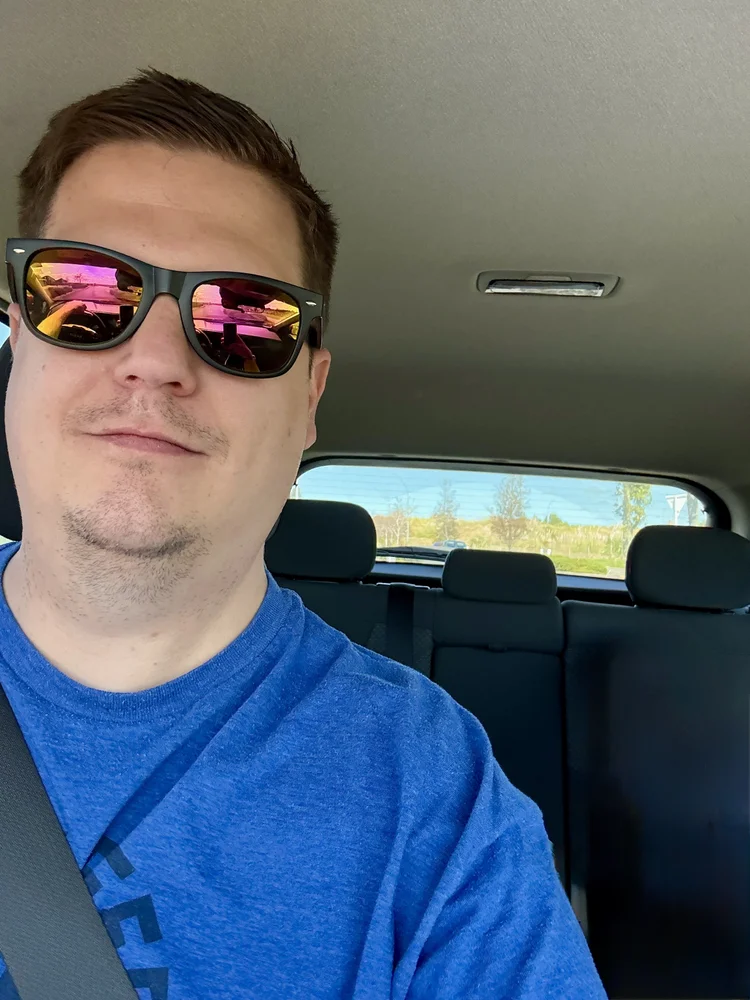
Finding My Place in the Cybersecurity Community
Professionally, the first 120 days have already shown me that Aotearoa New Zealand’s cybersecurity community is welcoming, curious, and serious about resilience. When the Summer of Tech mentorship circles wrapped up, I received feedback that reinforced why I came here in the first place: to share global lessons in ways that make a practical difference locally. Not long after, I was accepted to speak at the Hamilton ISIG chapter, another moment that signalled I was no longer just a new arrival, but an active participant.
Engagement has not stopped there. I have been fortunate to attend NZITF and OWASP AppSec New Zealand in Auckland, where cultural perspectives, code-level lessons, and AI’s impact on development were front of mind. In the months ahead I will also be at ChCon and Kawaiicon to continue building relationships, learning from local practitioners, and contributing where I can.
I am also active in the InfoSecNZ community on Discord, a lively forum for sharing local challenges, and I am a paying member of ITP NZ, which requires dues but provides a professional anchor and access to ongoing dialogue across the wider tech sector.
What stands out is not just the technical content but the way people interact. At conferences and local chapter events, people are consistently polite and curious. Unlike in the U.S., where some attendees ask “gotcha” questions designed to put a speaker on the spot, the tone here is collaborative and respectful. For someone used to high-pressure conferences in the States, this difference is refreshing, and it underlines the value of building cybersecurity capability in a way that is collective rather than ‘just’ being competitive.
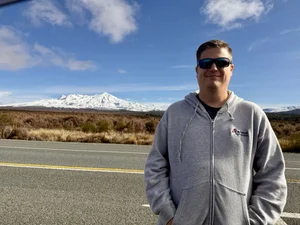
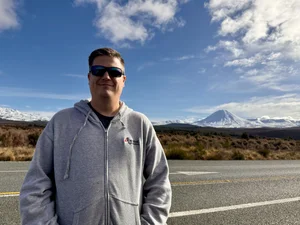
On the road to NZITF from Hamilton to Wellington, had to take a picture with Mt. Doom of course
Settling the Family
Relocating with a young family has been both the hardest and the most rewarding part of these first 120 days. My four-year-old struggled more than I anticipated. She missed her friends deeply, and the move felt disruptive in ways that are hard to explain at that age. The early weeks were difficult, and I underestimated how much adjustment she would need. The good news is that she has now settled into Kindy, made new friends, and built a social circle that gives her a sense of belonging.
My two-year-old adapted faster. Because he is younger, he is naturally more independent. He slips into playgroups easily and still finds ways to socialise with local kids. The transition for him has been lighter, though no less meaningful, as he builds his own connections. Both children are now part of a community where they are not just cared for, but where te ao Māori is woven into the everyday learning environment. Seeing them come home with their own pepeha is a reminder that this move is about more than geography, it is about growing roots in a culture and community we all respect.
This transition is not just about the children. My partner has also begun her first trimester at the University of Waikato, which is another step toward embedding our family into the life and rhythm of Aotearoa New Zealand.
We were fortunate to secure housing before we left by asking enough property managers to conduct FaceTime and Zoom tours. Several ghosted us at first, but eventually a helpful agent at Ray White Hamilton came through. Even so, we could not turn on the utilities until we were physically present, so after arriving to an empty house we had to stay in a motel for a few days. That first week was spent buying everything from scratch such as beds, appliances, cars, even the small things that normally accumulate over years.
Then came the basics of establishing life here: new phone numbers, IRD numbers, driver’s licences (issued automatically if you already hold an American licence, no test required), and health insurance. Because we do not yet hold permanent residency, we are classified as “casual.” Even so, health insurance is about one-fifth of what we were used to paying in the U.S., which was an unexpected relief. Opening a bank account also took time. With my work visa (through my partner’s student visa), I was eventually able to do it, but it required verifying identities, providing banking history from the States, and working through the local compliance steps.
Professionally, I also had to adapt quickly. Writing a CV here is very different from the American format, and I took a shortcut by working with CV People NZ. It was worth every dollar. By Month 3 I was in active job-hunting mode, with several interviews and one particularly promising opportunity that I hope to announce soon.
Now, four months in, we are focusing more on cultural integration. Small things matter: saying “plaster” instead of “band-aid,” or “sneakers” instead of “tennis shoes.” I will never have the accent, nor do I want to appropriate anything that is not mine, but I do want to show respect through effort. Even something as simple as avoiding trauma dumping or learning not to overwhelm people with American energy has been part of that process.
These milestones, big and small, are proof that the move is not just mine, but ours.
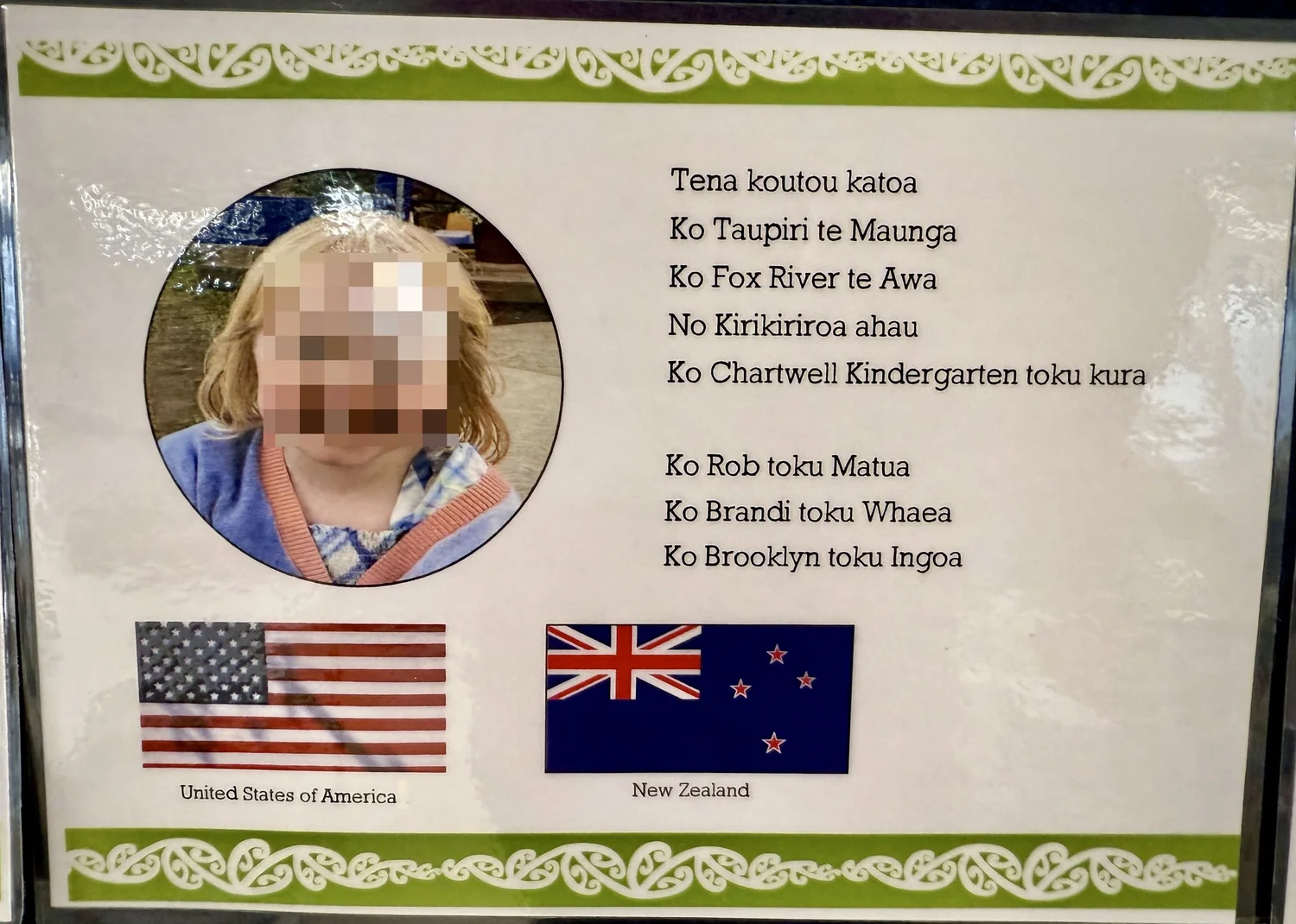
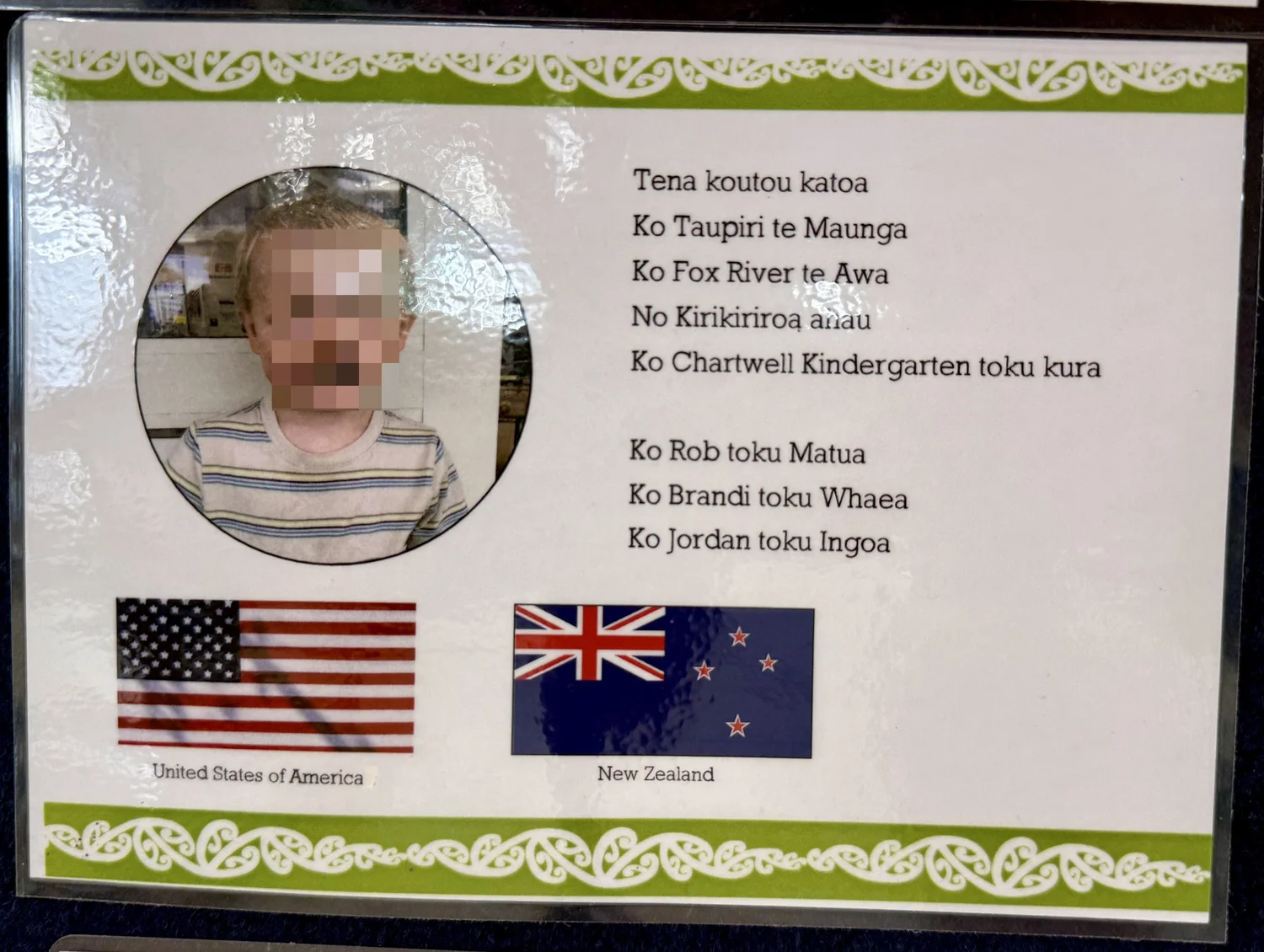
Settling the Family — In te ao Māori there is a tradition of introducing yourself by naming your mountain, your river, and your place. It grounds you in community and shows where you come from.
Resetting Priorities
Beyond the logistics of settling in and the professional milestones, what has struck me most over these first 120 days is the shift in values. Clean air, safe water, and fresh food are not luxuries here, they are normal. The natural beauty is obvious from the mountains to the coastlines, it is hard not to feel grounded in place every time you step outside. But beauty alone is not what makes the difference. It is how that environment changes your state of mind.
Daily life here is less frantic. I did not realise the full extent of the stress I carried in the United States until I began to let go of it. Even now, I am still detoxing from years of constant urgency, over-scheduling, and low-level tension. Aotearoa does not erase stress, but it recalibrates it. There is space to breathe, to walk, to think. People do not rush every interaction, and the pace of life allows more continuity between work, family, and community.
This is not about perfection. Groceries can be expensive, and waiting lists for services can test your patience. Yet the trade-offs are worth it. Convenience is not the organising principle of society here. Wellbeing is. That shift makes the difficulties not just tolerable but valuable, because they come with a healthier balance and it is one that is worth defending and preserving.
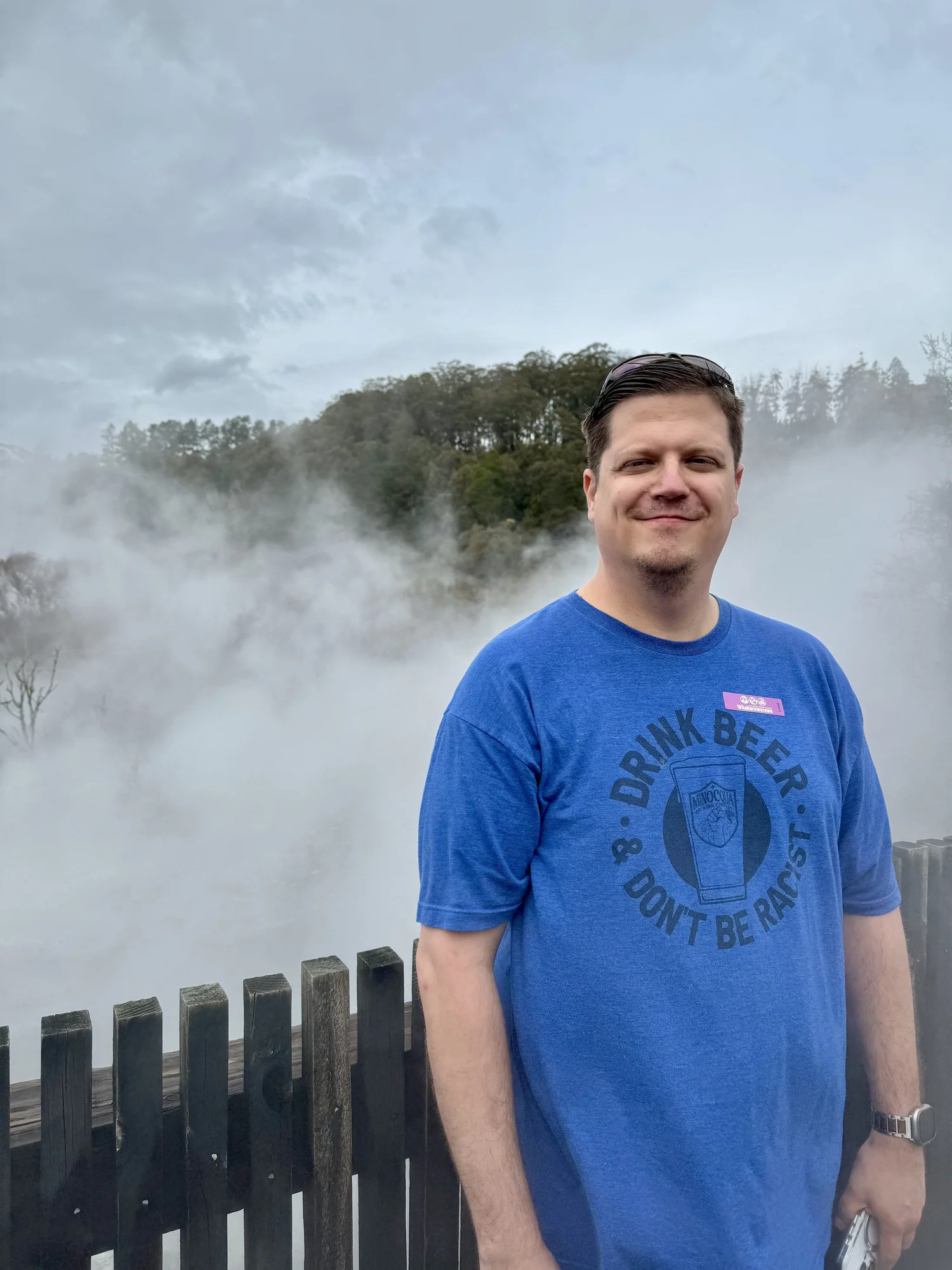
For friends and colleagues back in the States, I know this path is not easy and it is not possible for everyone. But if you are thinking about where to take your skills, and where you might want to live a life aligned with new values, know that the challenges here are real but the rewards are greater.
